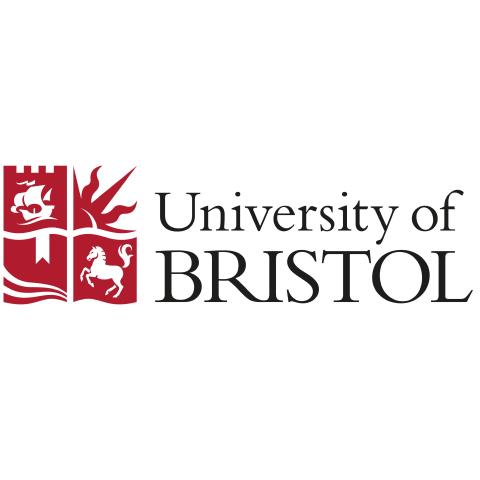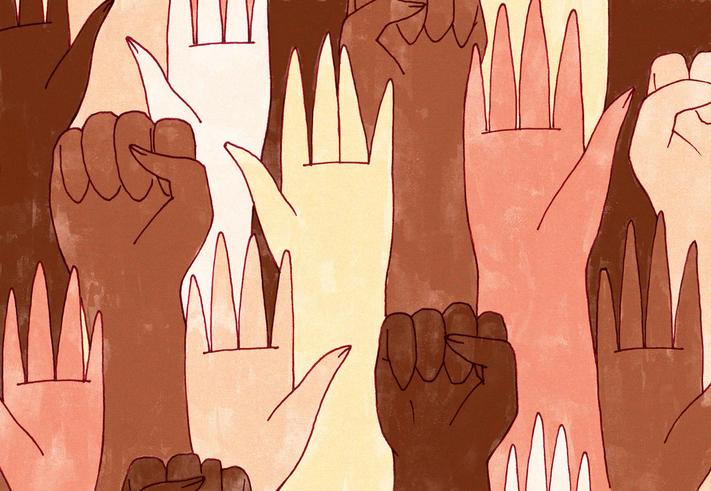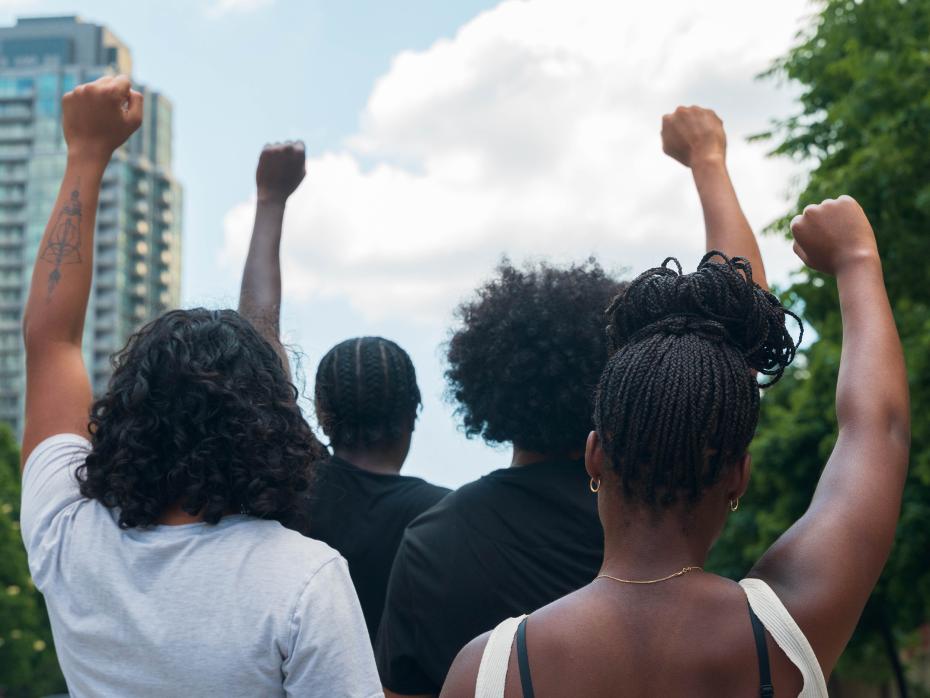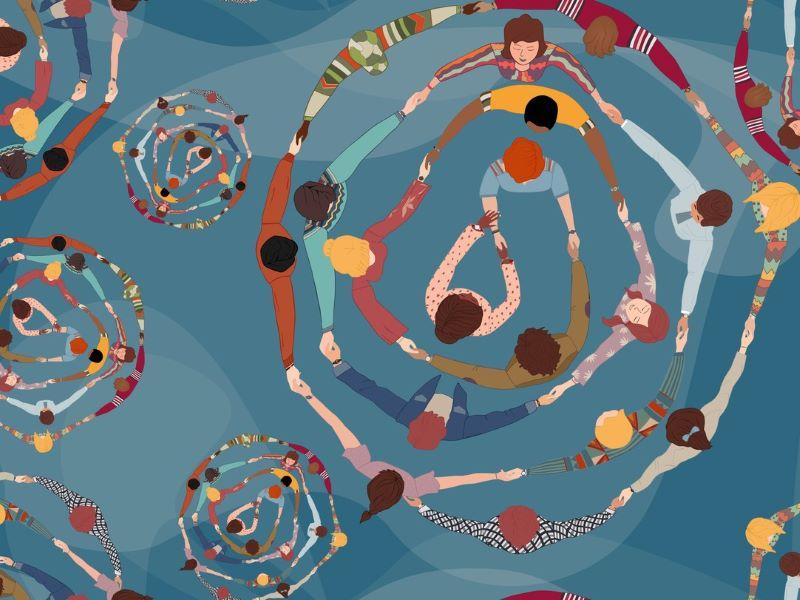
We must acknowledge our positionality to inclusively engage the community
Community engagement is a critical part of becoming a civic university, an institution embedded in, engaging with and serving the local community. Working with the community instead of on the community or perpetuating colonial and white saviour notions of working for the community will support and embolden strategic aims, research and teaching.
I see community engagement as not just the geographical spaces we are situated in, but also the spaces within our institutions and how we engage with the diversity of staff and student communities.
In therapy, I tell my clients, “What is out there will be in here,” everything an individual experiences presents in the small therapeutic space. With community engagement, I say, “What is in here [our institution] will be out there.” Power dynamics, biases and attitudes that exist within the institution are replicated in the community. If an institution is not representative, has power structures that are exclusionary or views minoritised members of its own community as lesser, all these attitudes will be communicated in interactions with communities in our geographical location.
Acknowledging our positionality, ie, how our identities influence and bias our engagement with others, is vital. My position as a woman of colour impacts all of my experiences with others, especially working in higher education in a predominantly white elite institution. My work roles (psychologist, psychotherapist and inclusion trainer) also offer different lenses on my engagement with others. I have consciously chosen to situate my work within an anti-racist, intersectional and decolonial framework. Other academics who are working towards the goals of the civic university will have different personal characteristics they bring. Recognising that all aspects of our personal and professional selves influence how we engage with each other can help us understand and explore ways in which we can work effectively with communities within and outside the university. Exploring our positionality should be core to our work.
- Resources for higher education professionals on outreach and communication
- Change in higher education is hard, but not impossible
- Community-engaged research can give a voice to marginalised people
Often, the language we use when discussing minoritised communities is framed in terms of deficit. Terms such as “hard to reach”, “minority”, “vulnerable” and “disadvantaged” all imply a negative bias. In reality, communities have innumerable assets that could be mobilised to achieve collaborative aims. These include offering support in communicating health messages, recruiting individuals for research and locating spaces for engagement. Collectivist cultures promote the group above the individual; this translates into great teamwork skills.
It is notable that we also use a deficit lens with initiatives such as widening participation schemes where there is a balance to be struck between advancing equality and inclusion and reinforcing messages of not belonging or of being a saviour to those otherwise doomed. Here I return to positionality and who does the work. What are the attitudes of those who lead this work? What are their lived experiences that they bring to the connection? What support is available after students are enrolled via such schemes to ensure that they can thrive? Their support needs will be different.
Power determines what knowledge is shared, what is repressed and whose knowledge is valued. I have witnessed projects defined as community engagement that never actually engage with the communities they purport to serve other than to deliver a white saviour-style intervention without ever asking communities what they might want or need. Projects are planned within a university about engaging with local communities, without the input of the communities. This can look like posting out leaflets to different services. Those with power (almost always white, male, able-bodied, neurotypical) badge this as inclusion and engagement work. Having a room full of similar people brings only similar approaches to the table. Not having members of the community present to hold these approaches accountable results in claims of community engagement that are far from the aims of the civic university. Some of this can be mitigated by having diverse and representative staff. Despite the increase of staff from minoritised backgrounds in higher education, decision-making and senior positions remain firmly the province of white staff. Community engagement that involves the community from the start, involves students throughout and has diverse staff can challenge these tick-box approaches. However, these can be productive and make a meaningful contribution only if there is psychological safety – a space where people feel safe to challenge and ask questions and know that they will not be ostracised if they challenge power structures.
Power can also be seen in the way in which community engagement is undertaken. Distribution of leaflets can be seen as enough to bring people in without any actual engagement or relationship-building necessary. If people don’t respond to leaflets, the community risks becoming viewed as problematic and “hard to reach” in the face of institutional benevolence creating opportunities for the disadvantaged. We do not critically engage with why people may not want to attend, what the barriers are, who is doing the engaging, how have they connected with the communities, where is the event – is it accessible? When is our event – whose time frame are we working to?
Spaces are never neutral, they are always racialised and gendered. My students talk to me about the “misogynoir” (anti-Black racism combined with misogyny) of academic spaces. This goes unchecked when those in power are, as a student in my research identified, predominantly “pale, male and stale”. Even when spaces are more balanced with gender representation, there is rarely racial and religious representation. Without this, even the most well-intentioned are more prone to bias, blunders and insensitivities in our engagement and inclusion efforts, be that within the university or out in the community.
When it comes to community-engaged research, reframing our thinking around ethics is essential. University ethics processes are governed by the medical model, which is inherently power-driven and colonial. When working with communities as equals, developing ethical parameters to work safely and respectfully with community partners can help to rebalance power. These can be established with community partners – working with them to establish what is needed and valuable, as every community will have its own priorities. There is no one way of doing community engagement. Good practice is governed by principles of trust, relationship-building, effective communication and reciprocity where everyone feels part of the process.
Reflecting on the difference between what is important and what is urgent is useful. In the neoliberal context of higher education, everything is urgent and runs to the timeline of the organisation. Time, however, is multifaceted and constructed differently across cultures. Linear time is only one facet. What is urgent to an academic – conducting our research within a short time frame or delivering a new module this term – might not align with the community’s needs.
Taking time to understand community needs and establishing shared priorities and timelines will build mutually beneficial engagement. Investing in relationships across the community and attending and supporting events without any agenda of our own work can help to understand communities and their needs better. The important work – the work that can lead to change – involves working to build relationships and understanding, developing and sharing knowledge in partnership with our communities. Put simply, community engagement must engage the community.
Nilufar Ahmed is a senior lecturer in social sciences at the University of Bristol.
If you would like advice and insight from academics and university staff delivered direct to your inbox each week, sign up for the Campus newsletter.




